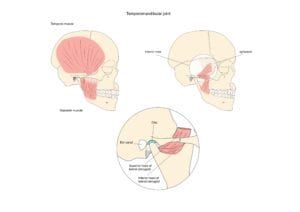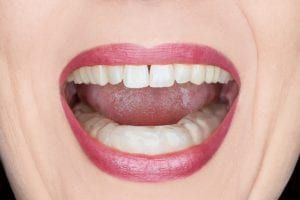TMJ Treatment

The temporomandibular joint, more commonly referred to simply as TMJ, sits on either side of your face just below your ears. The TMJ is responsible for opening and closing your mouth, as well as for chewing, biting, and speaking. When this joint is overworked it can cause pain and tenderness, popping or clicking noises, headaches, ear aches, and even locking of the jaw. These symptoms are commonly associated with what is known as temporomandibular joint disorder, or simply TMD. Although TMD cannot be cured, there are a variety of treatments available to help manage its symptoms. Because TMD can be a progressive disorder, it is highly important to seek help once you start experiencing symptoms.

Did You Know?
The National Institute of Dental and Craniofacial Research (NIDCR) estimates that at least 10 million Americans experience TMD. The NIDCR has also found that TMD is more prevalent in women than it is in men, although both genders can experience it.
Frequently Asked Questions:
Do I need TMJ treatment?
You may need TMJ treatment if you are experiencing any of the following symptoms:
- Jaw pain or tenderness
- Frequent headaches
- Facial, neck, or shoulder pain
- Your jaw gets stuck
- Feeling like your jaw pops in and out of place
- Difficulty opening your mouth wide
- Difficulty or pain while chewing
- Facial swelling
- Dizziness
- Tinnitus or ear pain
- Grinding, popping, or crackling sounds when chewing or opening and closing your mouth
Ultimately, only a TMJ dentist or orthodontist can accurately diagnose TMD. To find out if you can benefit from TMJ treatment, schedule a consultation with your Glendale orthodontist today.
What can I expect when visiting Massih Ortho for TMJ treatment?
Your Glendale orthodontist will first need to perform an exam before diagnosing you with TMD. She will first ask about your medical history, stress levels, and symptoms you are experiencing. Since the majority of TMD symptoms are of muscular origin and can be alleviated by reducing stress on the joint, your Glendale orthodontist will develop a TMJ treatment based on just that. Dr. Massih will do a thorough examination of your teeth, bite, and head and neck musculature to identify any areas of concern and formulate a customized treatment plan for you. Orthodontic treatment may help TMD symptoms by getting the teeth and/or bite in a more ideal position to allow the jaw to relax, but sometimes other treatment modalities are necessary. Possible orofacial pain and TMD treatments that Dr. Massih may recommend for you include low-level laser therapy, a customized nightguard, trigger point injections, and/or Botox injections to relax certain muscles.
